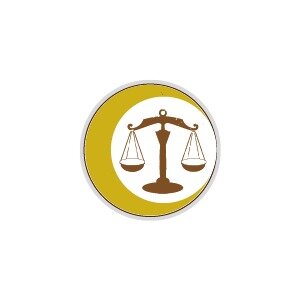Best Sanctions & Export Controls Lawyers in Kumasi
Share your needs with us, get contacted by law firms.
Free. Takes 2 min.
List of the best lawyers in Kumasi, Ghana
About Sanctions & Export Controls Law in Kumasi, Ghana
Sanctions and export controls are crucial legal frameworks that regulate the movement of goods, services, and technologies across borders for security, economic, and political reasons. In Kumasi, as in the rest of Ghana, these laws are designed to ensure national security, fulfill international obligations, and promote economic stability. Sanctions typically refer to government-imposed restrictions on trade and financial transactions with specific countries, entities, or individuals. Export controls, on the other hand, regulate the export of certain goods, technologies, or services, especially items with potential military or dual-use applications. Businesses, individuals, and organizations involved in international trade or cross-border transactions must comply with these laws to avoid severe penalties.
Why You May Need a Lawyer
Legal expertise in sanctions and export controls is essential due to the complexity and potential consequences of non-compliance. You may need a lawyer if you are:
- Importing or exporting goods and are unsure about whether your products are restricted or subject to controls.
- Doing business with companies or individuals in countries subject to sanctions.
- Facing investigation, fines, or penalties for alleged violations of export control or sanctions laws.
- Seeking to implement an internal compliance program for your business.
- Pursuing licensing or authorization to export controlled items.
- Engaged in financial transactions with foreign entities and need to verify compliance.
- Accused of inadvertently violating laws due to new international developments or changes in regulations.
A lawyer can help you understand your legal obligations, navigate the application and licensing processes, represent you in enforcement actions, and provide ongoing compliance advice.
Local Laws Overview
In Kumasi, sanctions and export controls are primarily governed by national Ghanaian laws, with oversight from specific governmental agencies. Key aspects of local regulation include:
- The Export and Import (Prohibition of Certain Goods) Act, which restricts the export and import of specified items.
- Compliance with international treaties and obligations, such as United Nations and African Union sanctions.
- Mandatory licensing requirements for exporting strategic or dual-use goods, especially those with technological or military uses.
- Customs regulations enforced by the Customs Division of the Ghana Revenue Authority.
- Penalties for violations, which may include fines, confiscation of goods, or criminal prosecution.
- Screening and reporting duties for financial institutions to prevent dealings with sanctioned parties.
- Continued updates and adaptations to reflect changes in global sanctions regimes and export control frameworks.
Both businesses and individuals are expected to stay informed and compliant with evolving laws to avoid serious repercussions.
Frequently Asked Questions
What are export controls?
Export controls are legal measures that regulate the export of certain goods, technologies, or information to other countries, particularly items that have military, security, or dual-use potential.
Who enforces sanctions and export controls in Kumasi, Ghana?
In Kumasi, enforcement is primarily handled by the Customs Division of the Ghana Revenue Authority and various governmental agencies guided by national laws and international obligations.
What goods are most commonly subject to export controls?
Strategic goods, high-technology products, military equipment, chemicals, and items that can be used for both civilian and military applications (dual-use items) are frequently subject to controls.
Are there penalties for violating sanctions or export controls?
Yes, violations can result in fines, seizure of goods, imprisonment, and loss of trade licenses, depending on the severity of the offense.
How can I determine if a country is under sanctions?
You can check official government notifications, consult the Ministry of Foreign Affairs, or seek legal advice to identify current sanctions regimes affecting certain countries.
Do I need a license to export restricted goods?
Yes, exporting restricted or controlled items generally requires you to obtain proper authorization or licenses from the relevant government agencies.
Can restrictions change based on international developments?
Yes, Ghana frequently updates its sanctions and export control regulations to remain aligned with international developments and obligations.
What should I do if I suspect I have violated export control laws?
You should consult a qualified lawyer immediately to assess the situation, inform authorities if necessary, and develop an appropriate response or defense.
Are financial transactions also subject to sanctions?
Yes, financial institutions must comply with sanctions laws, and individuals and businesses must ensure they do not engage in prohibited transactions with sanctioned parties.
How can I stay compliant with export control and sanctions laws?
Regularly review relevant laws and updates, consult with legal experts, implement compliance programs, and conduct due diligence before engaging in international trade.
Additional Resources
Individuals or businesses in Kumasi seeking more information or legal guidance on sanctions and export controls can consult the following resources:
- Customs Division of the Ghana Revenue Authority
- Ministry of Trade and Industry
- Ministry of Foreign Affairs and Regional Integration
- Ghana Export Promotion Authority
- Ghana Investment Promotion Centre
- Legal Aid Scheme offices for preliminary legal advice
- Accredited local law firms specializing in trade and export law
These organizations can provide guidance on regulations, compliance, licensing, and updates on international obligations relevant to sanctions and export controls.
Next Steps
If you require legal assistance regarding sanctions and export controls in Kumasi, it is advisable to:
- Document any transactions, communications, or business activities you are engaging in related to cross-border trade.
- Prepare a list of questions or concerns you have about regulations or compliance.
- Consult a qualified lawyer with experience in Ghanaian trade law and international regulations.
- Reach out to relevant government agencies for information on licensing, authorizations, or regulatory changes.
- Consider setting up an internal compliance program for your business to regularly monitor and update export control procedures.
Taking timely action and seeking professional legal advice will help you minimize risks, avoid penalties, and ensure your trade activities are compliant with both local and international laws governing sanctions and export controls.
Lawzana helps you find the best lawyers and law firms in Kumasi through a curated and pre-screened list of qualified legal professionals. Our platform offers rankings and detailed profiles of attorneys and law firms, allowing you to compare based on practice areas, including Sanctions & Export Controls, experience, and client feedback.
Each profile includes a description of the firm's areas of practice, client reviews, team members and partners, year of establishment, spoken languages, office locations, contact information, social media presence, and any published articles or resources. Most firms on our platform speak English and are experienced in both local and international legal matters.
Get a quote from top-rated law firms in Kumasi, Ghana — quickly, securely, and without unnecessary hassle.
Disclaimer:
The information provided on this page is for general informational purposes only and does not constitute legal advice. While we strive to ensure the accuracy and relevance of the content, legal information may change over time, and interpretations of the law can vary. You should always consult with a qualified legal professional for advice specific to your situation.
We disclaim all liability for actions taken or not taken based on the content of this page. If you believe any information is incorrect or outdated, please contact us, and we will review and update it where appropriate.










